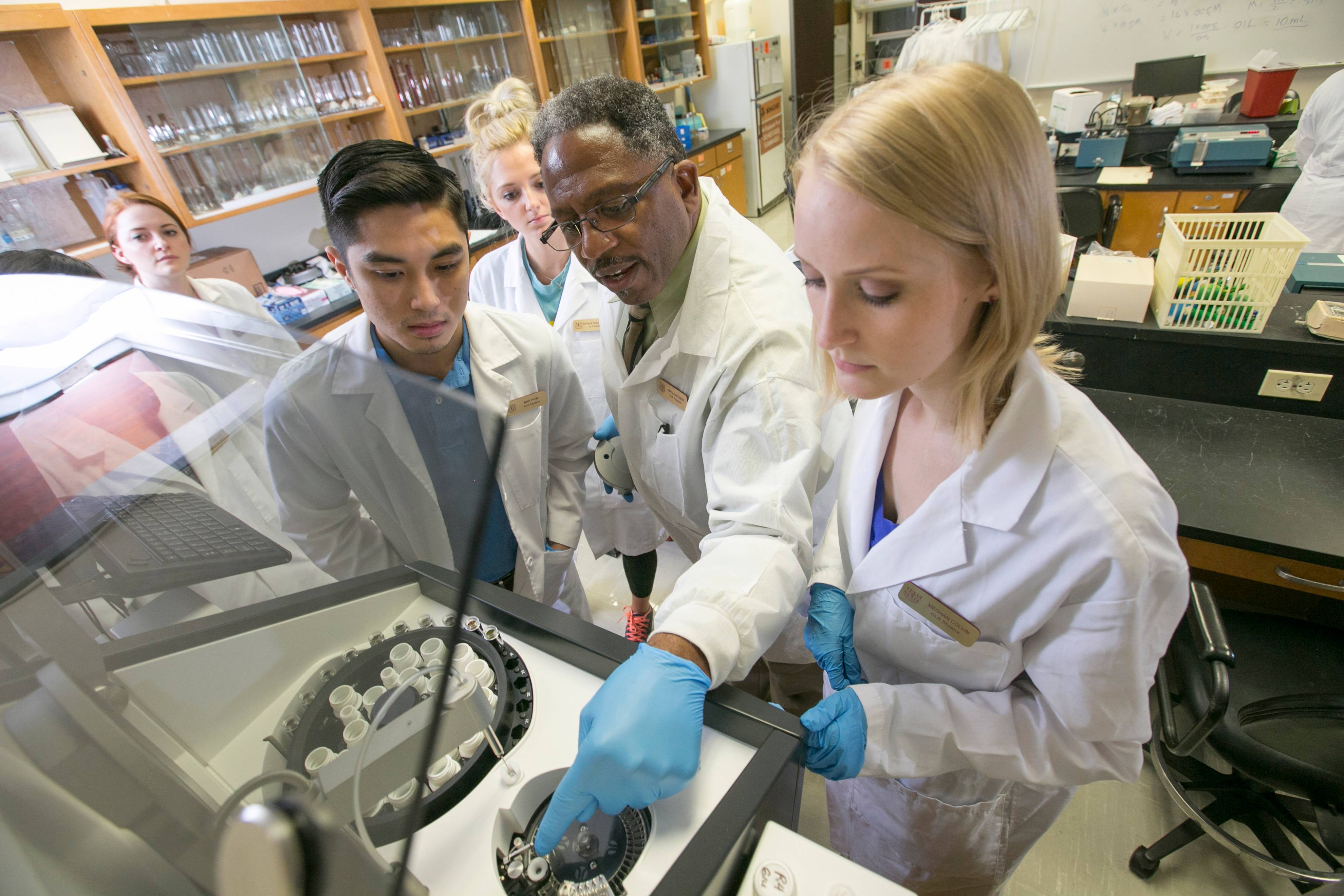Chemistry Checklist

Clinical Chemistry Rotation
Objectives, Expectations, and Competency Checklist
CLINICAL CHEMISTRY COMPETENCY CHECKLIST
OBJECTIVES:
After completion of coursework and this clinical experience, the MLS student will be able to:
- Perform the functions of a clinical laboratory scientist in the clinical chemistry department which include:
- Monitor ongoing quality control program.
- Evaluate quality control program.
- Organize the daily test workload.
- Maintain the procedure manual.
- Perform all basic laboratory skills.
- Maintain an effective safety program.
- Review Chemical Hygiene Manual
- Review Biological Safety Manual.
- Carbohydrates, Lipids and Lipoproteins, Heme Derivatives
- Biochemical theory and physiology
- Specimen selection, collection, transport, storage, and processing
- Laboratory testing
- basic testing
- special testing
- Biochemical manifestation of disease
- Protein and Enzymes
- Biochemical theory and physiology
- Specimen selection, collection, transport, storage, and processing
- Laboratory testing
- basic testing
- special testing
- Biochemical manifestation of disease
- Acid Base-Electrolytes
- Biochemical theory and physiology
- Specimen selection, collection, transport, storage, and processing
- Laboratory testing
- basic testing
- special testing
- Biochemical manifestation of disease
- Special Chemistry & Instrumentation
- Special Chemistry (Endocrinology, TDM, Toxicology, etc.)
- Biochemical theory and physiology
- Specimen selection, collection, transport, storage and processing
- Laboratory testing
- Biochemical testing
- Special Chemistry (Endocrinology, TDM, Toxicology, etc.)
- Instrumentation
- Principles of operation
- Essential components
EXPECTATIONS (of Texas State MLS students)
- Review the objectives for the Clinical Chemistry rotation before you go on the rotation (and, it doesn’t hurt to take them with you to check off what you’ve done or haven’t done).
- Take your Clinical Chemistry textbook with you and use it when you’re looking up information about specific tests; have a notebook handy to jot down important things so you don’t have to be told more than once.
- If you haven’t notified your rotation site, be sure to do so early to let them know you are coming and to find out what time you are to be there, where to park, clothing, and any other concerns you have.
- Be ON TIME, wear your scrubs if you have them (you can also take a lab coat, but many places will provide that), take your student TX State name tag, student handbook/review book, notify your lab contact and us if you are not going to make it because of sickness, emergency, etc.
- ON THE JOB-Observe universal precautions at all times; be attentive and proactive in your learning; ask if you don’t understand something but try not to “nag” (in other words, you shouldn’t have to ask “does this test require serum or plasma” 5 times J); show interest and enthusiasm; do not get caught up in lab/office politics/personnel feuds/etc.
- Every clinical site is a little different; try to be intuitive with the “workflow” and culture of the lab; you only have an opportunity to be there 3 weeks so try to fit in.
- This is YOUR opportunity to network with future employers and all of our sites communicate with each other about you and your peers….so, treat this like a 3-week interview!
- Learn from the different MLS and MLT professionals that you are around. Many of them have years of practical experience and “tricks of the trade” that are hard to show in a teaching lab on campus.
- Do not be afraid of repetition. The more experience you have with chemistry instrumentation and evaluating quality control data, the better. This is important. It will help you on your rotation exam and on your certification exam.
- Stay for the entire “shift”; be courteous and grateful to our clinical sites as we rely on them for future rotation; YOU are representing not only yourself but TEXAS STATE and the MLS program.
